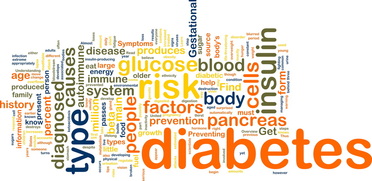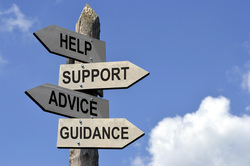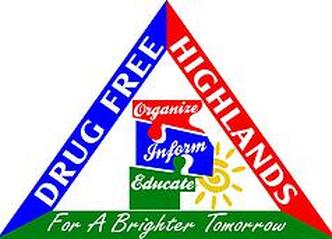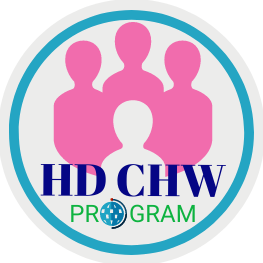Responsible Fatherhood Education Program
(MENDING THE GAP, A FATHERHOOD INITIATIVE)

HRHN will provide evidence-based education programs directly to fathers in DeSoto, Hardee and Highlands Counties; and fathers in Polk Counties through a subcontract with Healthy Start Coalition of Hardee, Highlands, and Polk Counties; to increase mindful parenting; increase father involvement; improve pro-fathering knowledge, skills, and attitudes; increase fathers’ frequency of and healthy interaction with children; increase healthy interaction with the mother of fathers’ children; improved proportion of participants who are satisfied in the way they handle conflict with the mother of their children; and improve proportion of participants who are satisfied with their current relationship with their children; ultimately leading to sustained confidence in completers’ abilities as a parent and sustained involvement of program completers’ in their children’s lives.
The topics focus on, but is not limited to how to foster play-based learning and pro-social skills development, which reflects on having a direct positive impact on the child's social learning, language, and literacy development through play. Through "Mending the Gap, a Fatherhood Initiative Program", fathers will get parenting coaching that uses behavior analysis to support families through positive behavior change, empathy training to improve there mother-father relationship as well as child-father relationship, and techniques on how to create a balance in the home between the child-led and adult-led activities and we help fathers transition from a period of incarceration.
The Legislature's intent of the responsible-fatherhood-inititative provisions is to recognize and support the important and unique role that fathers play in ensuring the physical, emotional, and economic well-being of their children and families and to recognize that families are strong when both parents act responsibly in caring for their children.
The topics focus on, but is not limited to how to foster play-based learning and pro-social skills development, which reflects on having a direct positive impact on the child's social learning, language, and literacy development through play. Through "Mending the Gap, a Fatherhood Initiative Program", fathers will get parenting coaching that uses behavior analysis to support families through positive behavior change, empathy training to improve there mother-father relationship as well as child-father relationship, and techniques on how to create a balance in the home between the child-led and adult-led activities and we help fathers transition from a period of incarceration.
The Legislature's intent of the responsible-fatherhood-inititative provisions is to recognize and support the important and unique role that fathers play in ensuring the physical, emotional, and economic well-being of their children and families and to recognize that families are strong when both parents act responsibly in caring for their children.
Hardee DeSoto Community Health Worker Program
(HD CHW Program)
|
HRHN will improve access to and navigation through care for the minority population, including the Hispanic/Latinx, a subset of the minority population, of rural Hardee and DeSoto Counties, FL through the development of the Hardee DeSoto (HD) Community Health Worker (CHW) Program, a care coordination program headed by a consortium of community health leaders that aims to assess the clinical and non-clinical needs of patients, provide appropriate health pathways through warm hand-offs and partner referrals, assistance when patients are faced with issues they are incapable of handling on their own, as well as follow-ups to ensure needs and appropriate continued preventative diagnostics are continuing to be met and providing needed health education. This Consortium is comprised of leading health organizations located in Hardee and DeSoto Counties. This program will provide Community Health Workers as Care Coordinators, an evidence-based model and utilize customized case-management plans, pathways to care, warm hand-offs for referrals, and motivational interviewing. These enhancements will only increase compliance with and the impact of the HD CHW Program.
|
The goal of the HD CHW Program is to empower and support the target population to improve access to care while making it easier for the target population to navigate the appropriate channels to receive all needed and requested care, improving their overall impression of their current health status. To achieve this goal, we will utilize a complementary set of strategies that when employed lead to the following short-term outcomes: (1) positive changes as it relates to assessment of individual’s personal health; (2) increase in knowledge and confidence in individual’s ability to navigate the health care system; (3) reduced barriers to accessing health care; (4) increased care coordination; (5) increased collaboration and engagement between participating providers; and (6) increased preventative care, including important diagnostic testing. The expected long-term outcomes are (a) increased access to care; (b) improved health outcomes of target population; (c) reduction in unnecessary emergency room usage by target population; and (d and e) increase in percent of target population with a personal doctor and who have received a medical checkup last year in Hardee and DeSoto Counties by 5% each. This program has been successfully serving patients since December of 2021.
Do you want help navigating healthcare? Please call us! For more information, you can call our CHW Program Offices at 863-471-6007, email the Program Coordinator, [email protected] or visit the HD CHW Website at hrhncommunityhealth.org.
Do you want help navigating healthcare? Please call us! For more information, you can call our CHW Program Offices at 863-471-6007, email the Program Coordinator, [email protected] or visit the HD CHW Website at hrhncommunityhealth.org.
Prior Network Initiatives
iMAD Health Education Program

Since 2008, through various state and federal grants, we have been able to provide healthy choices education to help reduce STDs, teen pregnancy, and other risky behaviors within our rural communities. Our iMAD Program was most recently funded by a ACF C-PREP Grant. In addition to providing education to help reduce STDs, teen pregnancy and other risky behaviors, our programs also cover adolescent development, healthy relationships, healthy life skills and parent-child communication.
iMAD Girls and Why u-MAD Bro
|
Diabetes Master Clinician Program

Since 2008, Heartland Rural Health Network has worked with Medical Director, Dr. Edward Shahady, to facilitate the Diabetes Master Clinician Program (DMCP) in our rural communities. The DMCP offers an internet based registry that helps providers with population-based management of their patients with diabetes. Through patient “report cards” patients are able to track their progress in meeting certain goals. The patient “report card” is issued at each office visit and uses patient oriented language to inform them of their goals, reasons for obtaining tests, performing an exam and receiving medications. The registry also provides reports that indicate how well a practice is doing in achieving goals compared to all practices utilizing the registry.
Health care providers can attend the Diabetes University which is a creation of the Diabetes Master Clinician Program, Inc. and the NF SG chapter of the American Diabetes Association. The program goal is to assist nurses and medical assistants in Primary Care Offices with diabetes education of patients with Diabetes. For more information you can visit their website which describes this online course or view the document below for a summary of this program..
HRHN was featured in the Rural Monitor, a publication of the Rural Health Information Hub (RHIhub) on August 20, 2014. You can read the article here.
HRHN is listed in the Rural Health Information Hub's Community Health Gateway located here.
Read our Final Evaluation Report through the HRSA Outreach Grant here.
Health care providers can attend the Diabetes University which is a creation of the Diabetes Master Clinician Program, Inc. and the NF SG chapter of the American Diabetes Association. The program goal is to assist nurses and medical assistants in Primary Care Offices with diabetes education of patients with Diabetes. For more information you can visit their website which describes this online course or view the document below for a summary of this program..
HRHN was featured in the Rural Monitor, a publication of the Rural Health Information Hub (RHIhub) on August 20, 2014. You can read the article here.
HRHN is listed in the Rural Health Information Hub's Community Health Gateway located here.
Read our Final Evaluation Report through the HRSA Outreach Grant here.
Community Health Workers

The Diabetes Master Clinician Program is a three phase program designed to improve the quality of diabetes care and outcomes. Through a HRSA Rural Quality Outreach Grant we have been able to continue supporting the efforts of Community Health Workers. As described above, the first phase is an internet based registry which allows health care providers to track their office services for persons with diabetes. The second phase is a patient "report card" which helps patients track their goals. The third phase is to provide Community Health Workers (CHWs) to patients who may need or want extra assistance in managing their diabetes.
CHWs serve as a link between the health care provider and patient to improve quality of health care.
Some of the activities CHWs participate in include:
* Health Education
* Outreach To The Community
* Social Support
* Advocacy
* Help the patient understand the provider
* Help the provider understand the patient
CHWs help patients uncover the reasons a person may not be in control of their diabetes in a community based setting. Once a referral is made by the health care provider a CHW calls the patient, makes an appointment that fits their schedule, comes to the house so no travel is involved, and works with the patient to identify and address barriers to diabetes care and management.
CHWs serve as a link between the health care provider and patient to improve quality of health care.
Some of the activities CHWs participate in include:
* Health Education
* Outreach To The Community
* Social Support
* Advocacy
* Help the patient understand the provider
* Help the provider understand the patient
CHWs help patients uncover the reasons a person may not be in control of their diabetes in a community based setting. Once a referral is made by the health care provider a CHW calls the patient, makes an appointment that fits their schedule, comes to the house so no travel is involved, and works with the patient to identify and address barriers to diabetes care and management.
Drug Free Highlands Coalition

The Drug Free Communities Support Program, created by the Drug Free Communities Act of 1997, is the Nation’s leading effort to mobilize communities to prevent youth drug use. Directed by the Office of National Drug Control Policy (ONDCP), in partnership with SAMHSA, the DFC program provides grants to local established drug-free community coalitions to strengthen collaboration among community partners and to prevent and reduce youth substance use. Drug Free Highlands was recently awarded Years 6-10 grant, totaling $625,000. The funding for subsequent years is based on availability of funds. Based on the fundamental concept that local problems need local solutions the DFC grant funded coalitions engage multiple sectors of the community and utilize a variety of strategies to address local drug problems. The Network, in cooperation with Drug Free Highlands, is the recipient of funds and manages the grant. The Drug Free Highlands coalition is comprised of community leaders, parents, youth, teachers, religious and fraternal organizations, health care and business professionals, law enforcement, and the media. Data reflects that communities receiving DFC funding have seen significant reductions in past 30 day use of alcohol, tobacco, and marijuana among middle and high school students. For more information on Drug Free Highlands activities please contact the Coalition at
863-382-2138.
863-382-2138.
Health Planning & Community Engagement

We are involved in establishing and addressing health priorities and participating in health planning for counties that we serve. This is done through our involvement with agencies such as the Community Health Improvement Planning Council of Highlands County, the Hardee County Health Care Task Force, DeSoto County’s Community Health Action Team, Highlands Teen Pregnancy Prevention Alliance, Drug Free Highlands, the Healthy Start Coalition of Hardee, Highlands & Polk Counties, and others.
Grant Writing & Technical Assistance

We work with our local network members and partners to provide grant writing technical assistance as well as serve as a fiscal agent for various organizations.



